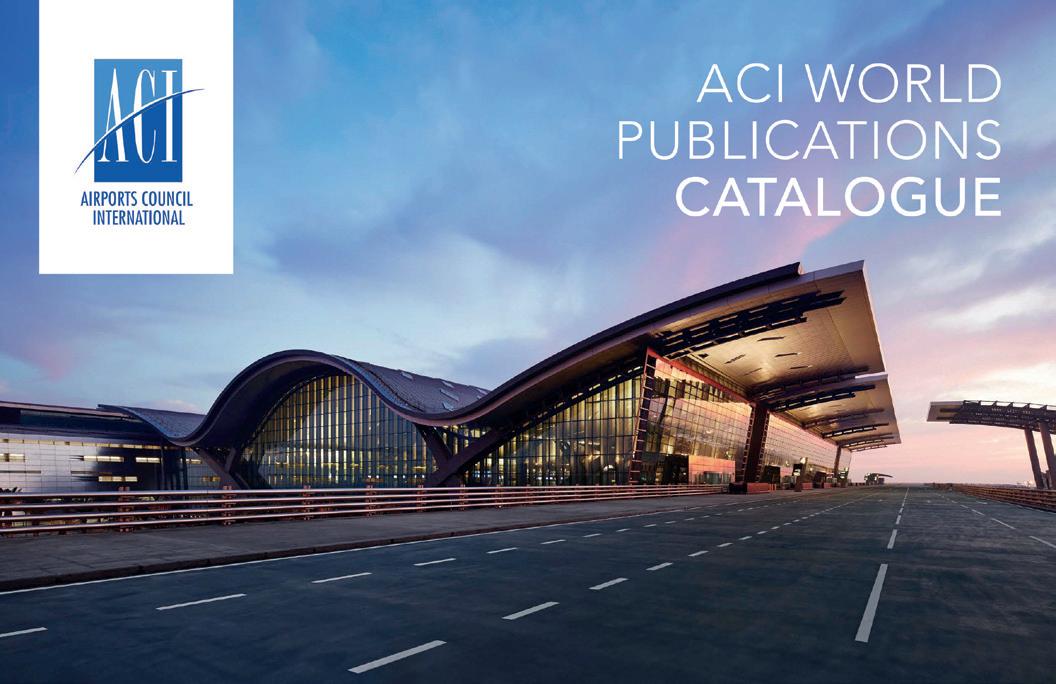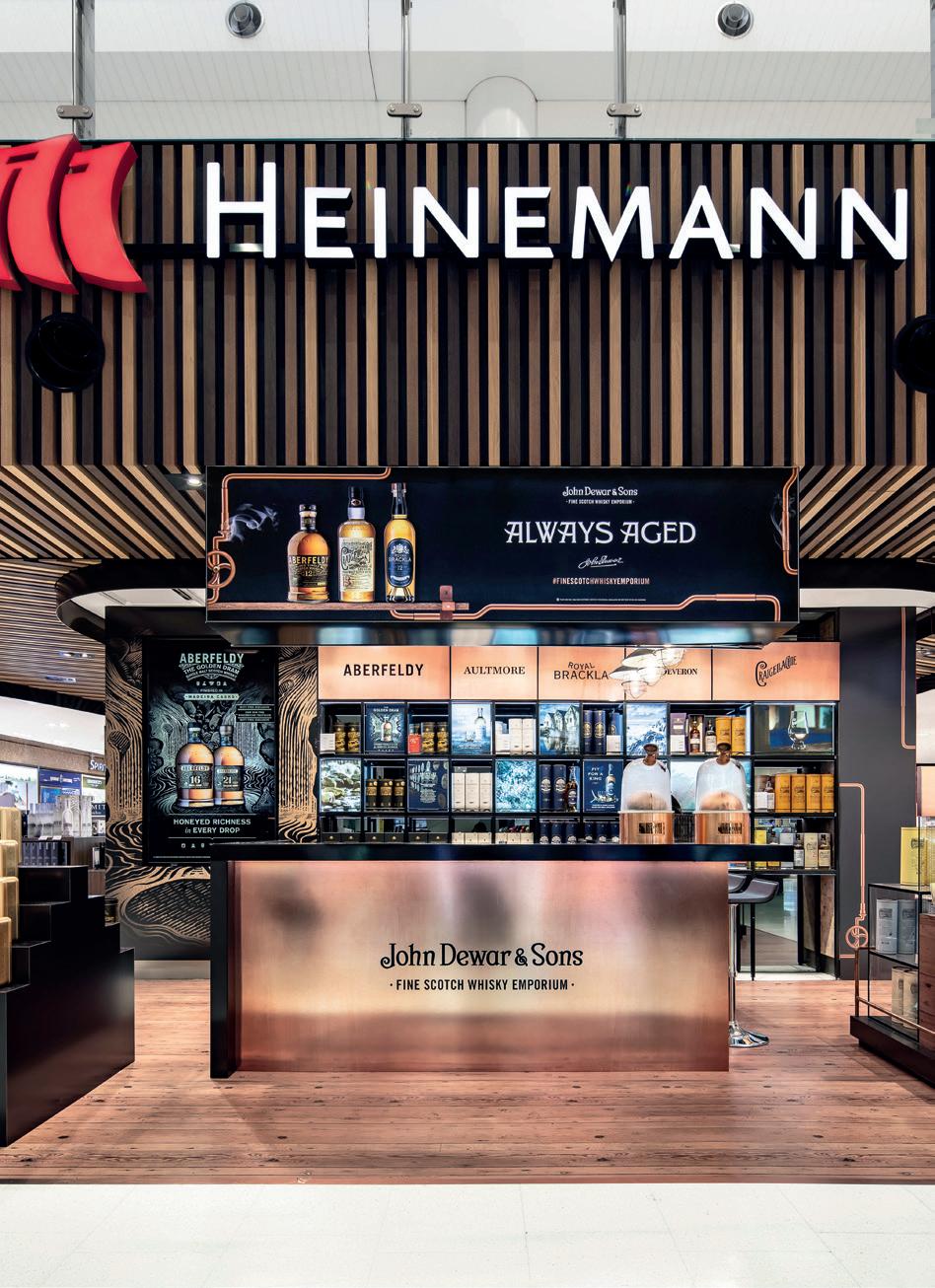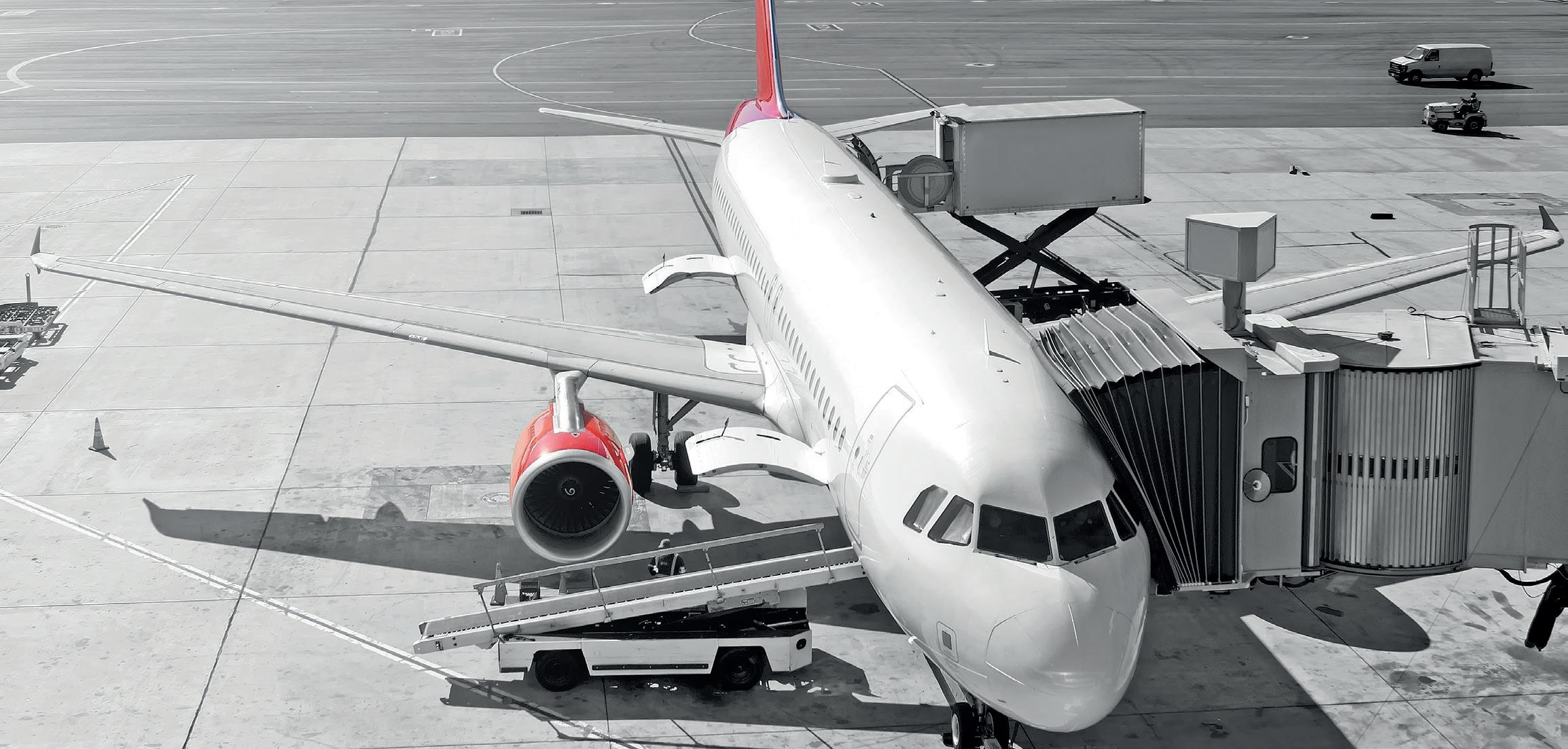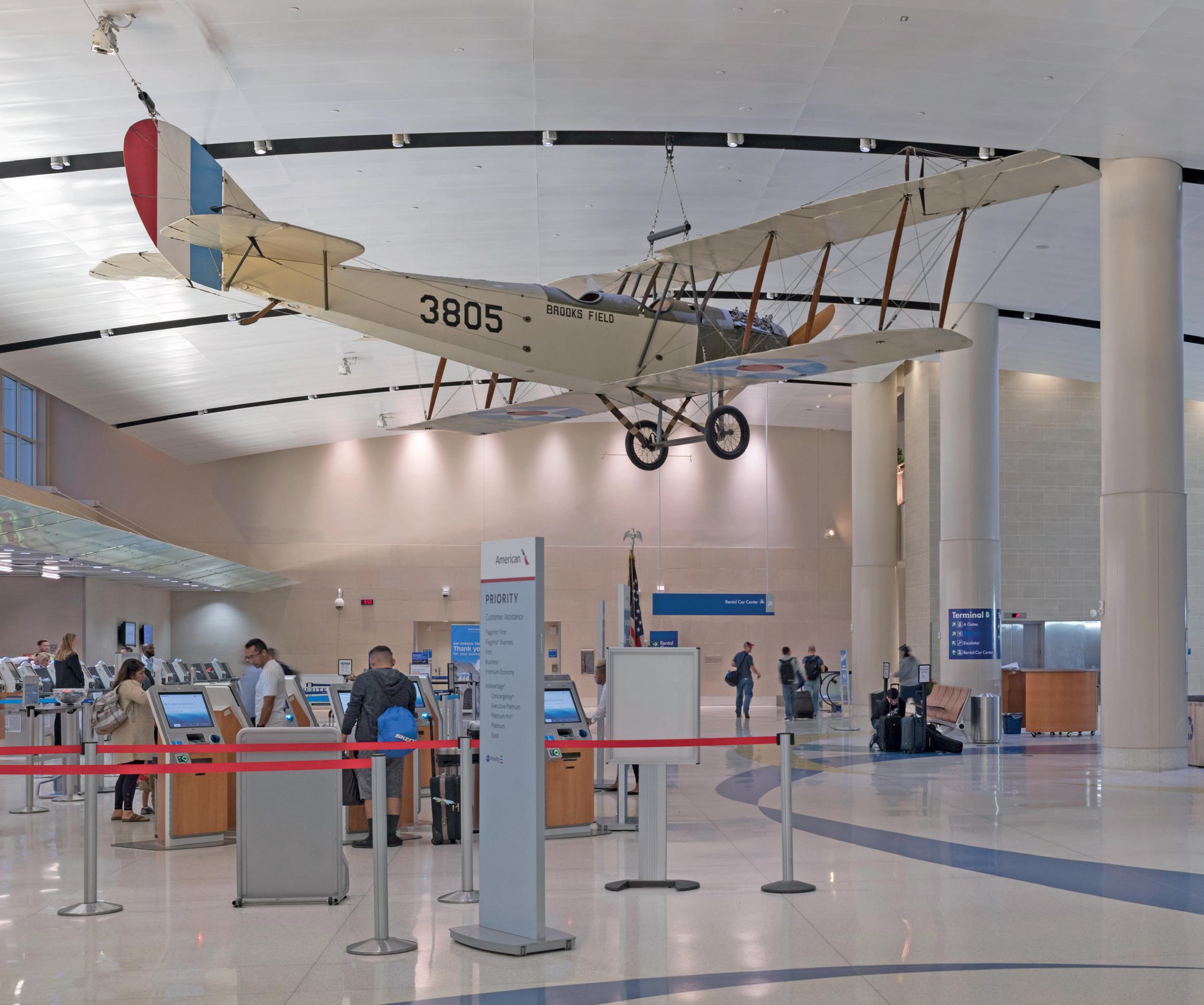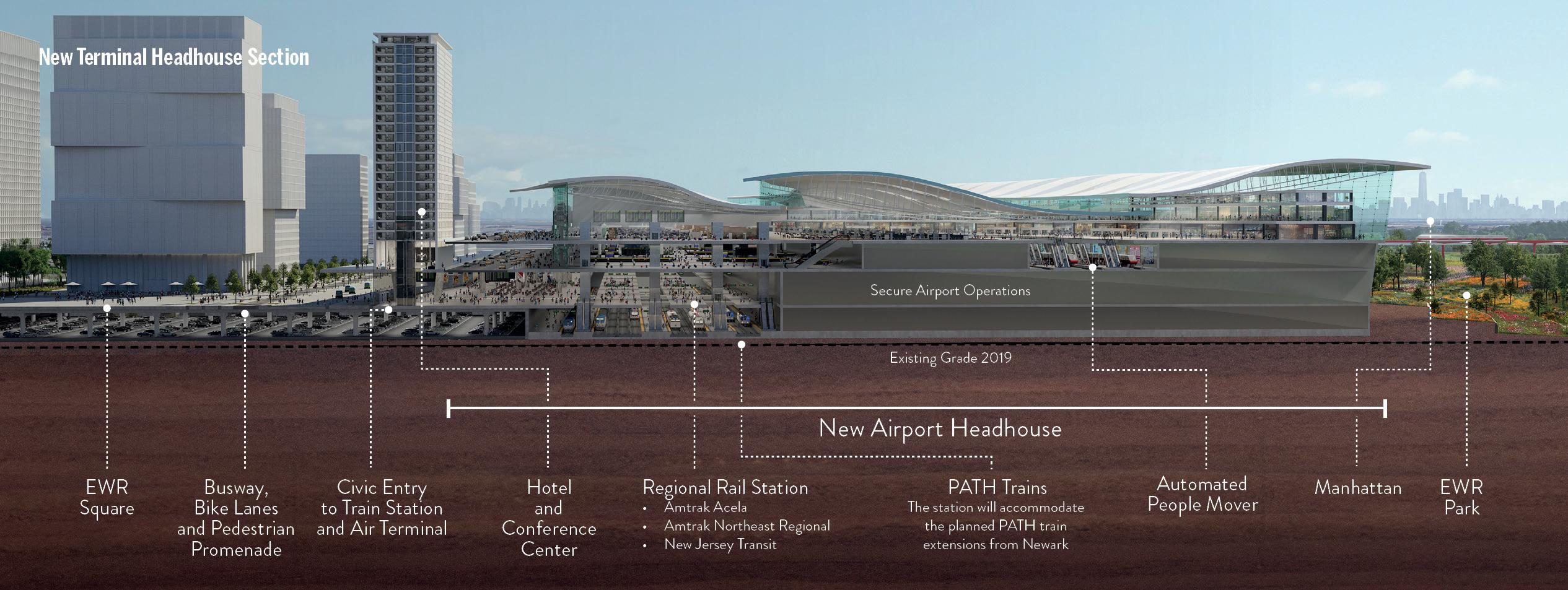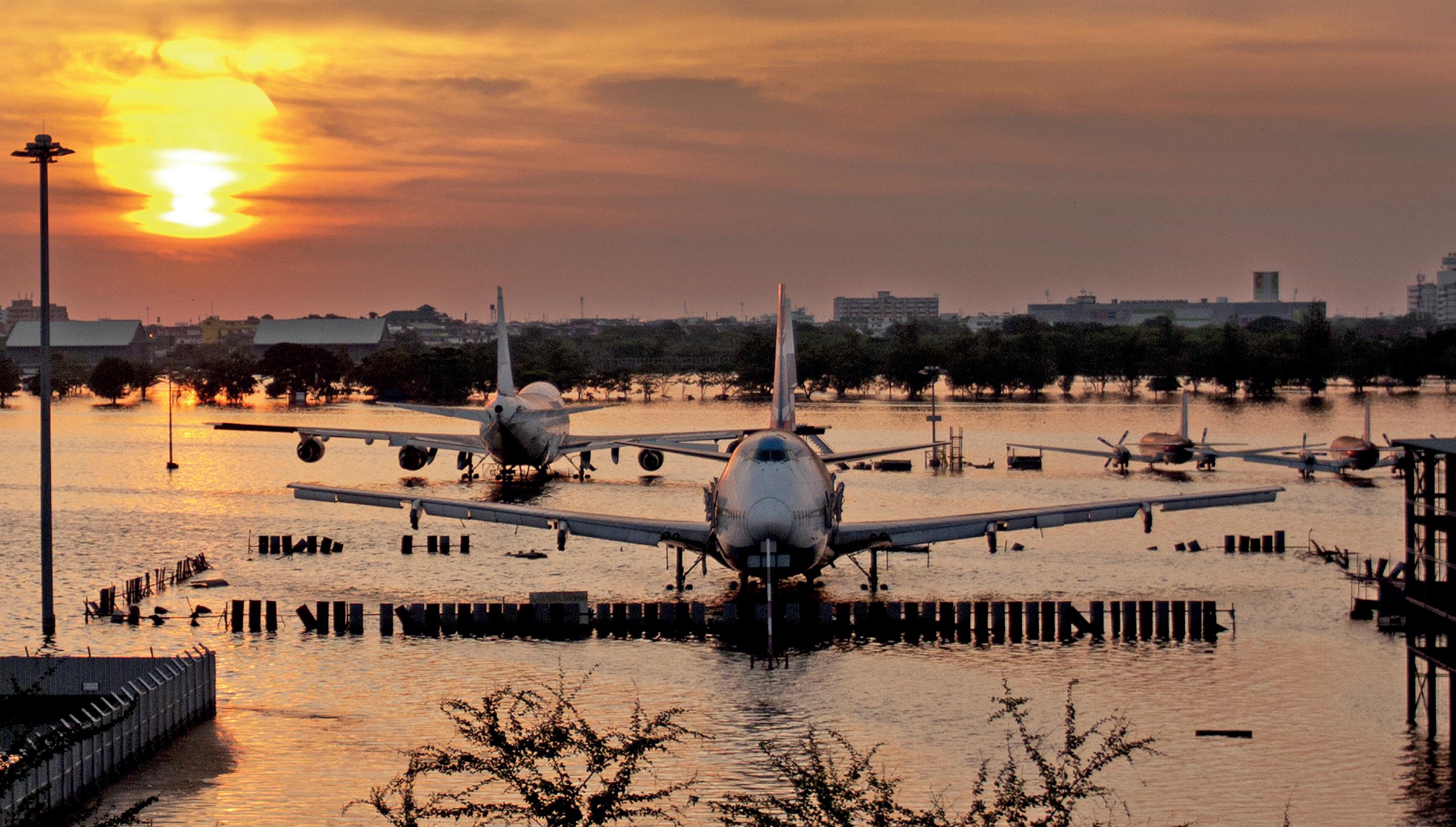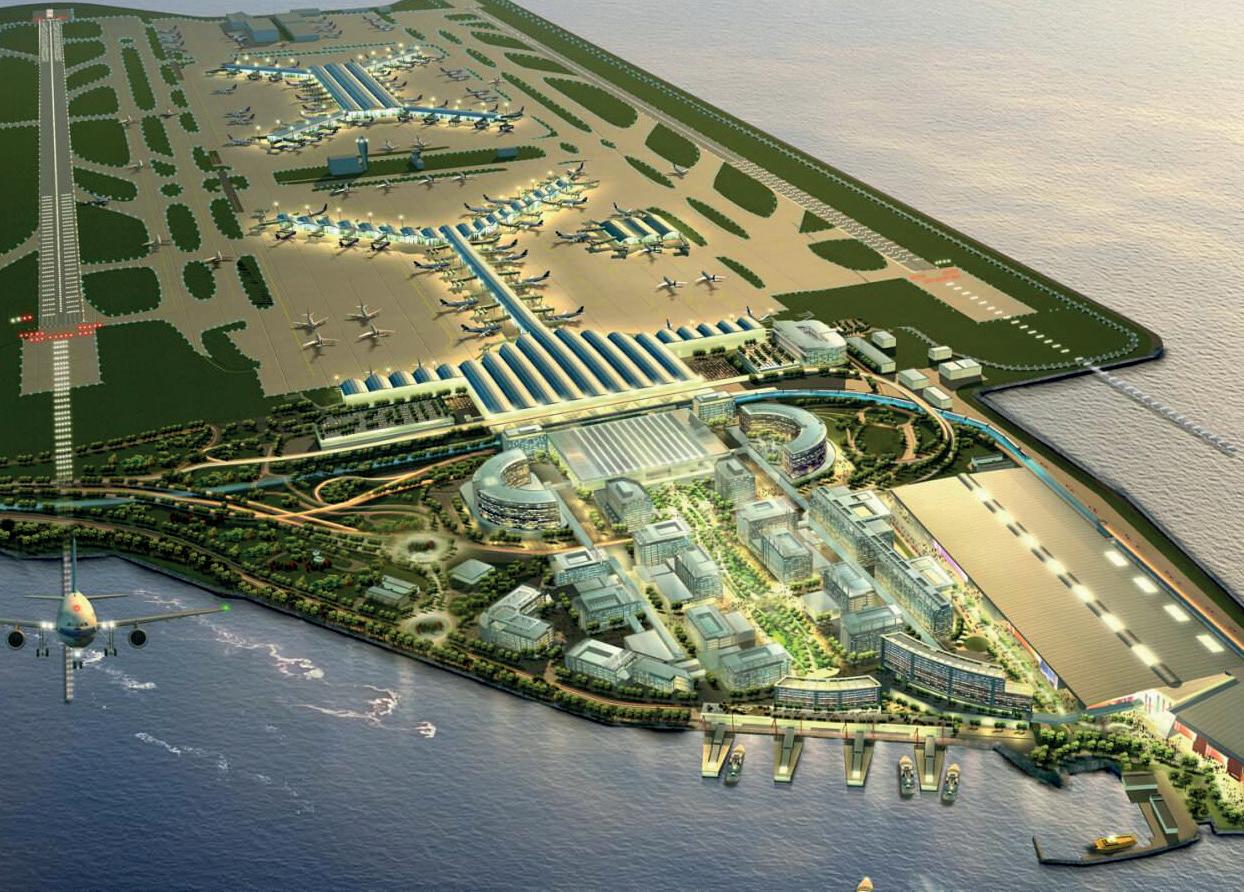
25 minute read
Volume
As part of the deal, it has pledged to invest $100 million on modernising an expanding the airport terminal over the next five years. GAP is currently interested in the privatisation of Grantley Adams International Airport in Barbados where the request for proposals is expected to be released in the first quarter of 2020.
Grupo Aeroportuario del Sureste (ASUR) World Headquarters: Mexico City, Mexico. Airports 100% owned and operated: None. Others: ASUR has a concession to operate, maintain and develop Cancún, Cozumel, Huatulco, Mérida, Minatitlan, Oaxaca, Tapachula, Veracruz and Villahermosa airports in south east Mexico.
Advertisement
Elsewhere in Central and South America it has a 60% stake in Aerostar Airport Holdings, operator of Luis Muñoz Marín International Airport in San Juan, Puerto Rico; and 100% owns Airplan, which operates six Colombian gateways – Rionegro’s José María Córdova International Airport and the domestic airports of Medellín, Montería, Carepa, Quibdó and Corozal. Plans to expand/reduce portfolio: ASUR states that it remains focused on selectively expanding its airport network. News: More than 55 million passengers passed through ASUR’s airports in 2019. The total was boosted by a record 9.5 million passengers (+13%) in San Juan in Puerto Rico and over 12 million people passing through its Colombian gateways. ASUR plans to invest over $100 million on enhancement projects at Cancún International Airport in 2020, which include the expansion of terminals 4, 3 and 2.
Incheon International Airport Corporation (IIAC) World Headquarters: Incheon, South Korea. Airports 100% owned and operated: Incheon International Airport in South Korea. Others: It has a five-year concession to manage and operate Terminal 4 at Kuwait International Airport. Plans to expand/reduce portfolio: IIAC refuses to speculate on potential targets. News: IIAC is reported to be one of the parties competing to win the concession to operate Podgorica and Tivat airports in Montenegro. It has also expressed an interest in operating Kuwait Airport’s new Terminal 2, which is due to open in 2023.

Limak Group World Headquarters: Ankara, Turkey. Airports 100% owned and operated: None. Others: Limak has a 20% stake in IGA, the company responsible for financing, building and operating Istanbul’s new €10.2 billion airport for the next 25 years.
In Africa, it spearheads LAS (Limak-Aibd-Summa), which has a 25-year contract to operate Blaise-Diagne International in Dakar on behalf of the government of Senegal; and in Europe has a concession to operate and grow Pristina-Adam Yasari International Airport in Kosovo. Plans to expand/reduce portfolio: Not known at this stage. News: With its background in construction, it should come as no surprise to learn that Limak continues to be involved in airport development projects across the globe. It is currently helping construct Kuwait Airport’s new $4.2 billion Terminal 2 and through subsidiary, Limak Insaat Kuwait, is bidding to win the contract for the next phase of construction at the airport.
Macquarie Infrastructure and Real Assets (MIRA) World Headquarters: London, UK. Airports 100% owned and operated: Aberdeen, Glasgow, Southampton (through AGS Airports, a joint venture between a MIRA-managed fund and Ferrovial Aeropuertos) and Farnborough airports in the UK. Others: Macquarie has interests in seven Australian airports on behalf of investors. Gold Coast, Townsville, Mount Isa and Longreach courtesy of a 40% stake in Queensland Airports Limited; Cairns and Mackay through a 27% stake in North Queensland Airports; and a 7% stake in Perth Airport. Plans to expand/reduce portfolio: MIRA does not speculate on possible acquisitions/sales. News: A Macquarie-managed fund recently acquired Farnborough Airport in the UK from a consortium of private investors. The airport handles approximately 30,000 air traffic movements per annum and is home to the Farnborough International Airshow.
Talking about the deal, Leigh Harrison, Head of MIRA EMEA, said: “In addition to holding an important place in UK aviation
history, the airport is known for its high-quality offering to customers. Drawing on our extensive experience managing airport infrastructure around the world, we look forward to partnering with Farnborough Airport to ensure it remains an important contributor to the local economy and a business aviation gateway to London and the South East.”
In 2019, Macquarie completed a number of divestments across its airport portfolio. In the Asia-Pacific region, Macquarie-managed funds sold their controlling 50.1% stake in Hobart International Airport and the majority of their interest in GMR Airports – owner of India’s Delhi-Indira Gandhi and Hyderabad-Rajiv Gandhi airports. In Europe, Macquarie successfully finalised the sale of a 36% interest in Brussels Airport. This divestment followed Macquarie’s 2017 decision to sell its remaining stake in Copenhagen Airport following 12 years of involvement in the business.
Malaysia Airports Holdings Berhad (MAHB) World Headquarters: Kuala Lumpur, Malaysia. Airports 100% owned and operated: Kuala Lumpur International Airport and 38 other Malaysian gateways that include the international airports of Langkawi, Kota Kinabalu, Kuching and Penang; and Istanbul-Sabiha Gökçen International Airport in Turkey. Others: Malaysia Airports has an 11% stake in GHIAL, the GMR-led operator of Hyderabad–Rajiv Gandhi International Airport in India. Plans to expand/reduce portfolio: No information given. News: The foundation for a second terminal at Istanbul-Sabiha Gökçen is expected to be laid in the first quarter of 2020. When complete it will raise the airport’s capacity to 66mppa. Elsewhere, MAHB has a management contract for the IT operations at Hamad International Airport in Doha, Qatar.
Meridiam World Headquarters: Paris, France. Airports 100% owned and operated: None. Others: Meridiam has a 45% stake in Madagascan airport operator Ravinala Airports (Ivato and Facesne); a 32% interest in Airport International Group (AIG), operator of Queen Alia International Airport in Amman, Jordan; and is a member of LaGuardia Gateway Partners (LGP) which is building the new Terminal B at LaGuardia Airport in New York. Plans to expand/reduce portfolio: In expansion phase. News: Sofia International Airport (SOF) will join its airport portfolio later this year following the Bulgarian government’s decision to award the SoF Connect consortium the concession to operate and develop the gateway. The consortium – a 50/50 joint venture between Meridiam and Munich Airport International (MAI) – will run SOF for 35 years and have pledged to invest €600 million on upgrading the airport’s facilities. Top of the agenda for SOF in terms of new facilities is a third passenger terminal, which the consortium has agreed to build within 10 years, while the existing terminals need modernising.
Royal Schiphol Group World Headquarters: Amsterdam, the Netherlands. Airports 100% owned and operated: Amsterdam Schiphol, Lelystad and Rotterdam The Hague in Holland. Others: The Royal Schiphol Group has a majority 51% stake in Eindhoven Airport; owns 8% of Groupe ADP; and in Australia has a 19.61% interest in Brisbane Airport and a 35% stake in Hobart Airport. Through its 100% owned subsidiary Schiphol USA, Royal Schiphol Group holds a 51% stake in JFKIT, which operates Terminal 4 at New York’s JFK International Airport. In the Caribbean it acts as a strategic partner to Reina Beatrix Aruba Airport and is supporting the redevelopment of St Maarten’s Princess Juliana International Airport.
Royal Schiphol Group – investing and growing Active in the global market for over two decades, the Royal Schiphol Group has upped its activity in the last 18 months acquiring a controlling stake in Hobart Airport in Australia and throwing its hat into the ring for the concession to operate St Louis Lambert International Airport in the US before the city pulled the plug on the project.
Royal Schiphol Group has also arguably served notice of its growing ambitions outside of the Netherlands by appointing Kjell Kloosterziel as the director of a newly created international division, Schiphol International.
So, are we about to see a new period of investment in the international arena for the Royal Schiphol Group and does it have any focus areas in terms of expanding its airport portfolio?
Kloosterziel, as you might expect, is not giving much away. “What is our strategy for developing our international business?” he muses. “We look at all opportunities on an individual basis and take a global view when it comes to developing our international portfolio.
“The reason for this is twofold: on the one hand, it strengthens the financial position and expertise of the Group. On the other, it strengthens our position as an airport operator by providing opportunities for knowledge exchange, innovation sharing, and opportunities for employees of airports in the Schiphol Group to gain experience at other airports.
“The focus is on strategic assets that strengthen our overall Group portfolio and where the knowledge available within the Group can unlock additional value in a sustainable manner.”
He notes that all of the Royal Schiphol Group’s international assets performed well in 2019, in the process making “an important contribution” to the company’s overall results.
Talking about the key challenges for the Group’s airports in 2020, Kloosterziel says: “Many of our airports are undergoing major capital expansion projects to raise their capacity and enhance their service offerings to better equip them to meet current and future demand. “Completing these projects in an operational environment, safely, on time and with minimal inconvenience to our guests, is a key challenge for 2020 and beyond. Fortunately, we have extensive experience and knowledge of carrying out these types of projects within the Group and this will be key to dealing with this challenge.”
Plans to expand/reduce portfolio: Maintaining and expanding its global airport network is a key strategy. News: In October 2019, the Royal Schiphol Group and Queensland Investment Corporation (QIC) between them acquired a controlling 70% stake in Hobart Airport in Australia by buying 50.1% of its shares from Macquarie Infrastructure and Real Assets (MIRA) and a further 19.9% from superannuation fund, Tasplan Super. Hobart is the ninth busiest airport in Australia handling around 2.7mppa. Elsewhere in Australia, the Schiphol group acquired an additional 0.89% stake in Brisbane Airport in June 2019 and showed a glimpse of even greater ambitions when it expressed an interest in the potential privatisation of the US’s St Louis Lambert International Airport before the process was abandoned by the city’s mayor just before Christmas.
TAV Airports Holding World headquarters: Istanbul, Turkey. Airports 100% owned and operated: None. Others: At home in Turkey, TAV Airports has a 49% shareholding in Antalya Airport with equal voting rights and holds the concession to operate and develop Ankara Esenboğa (2023), Izmir Adnan Menderes (2032), Milas-Bodrum (2034) and Gazipasa–Alanya (2032) airports.
In North Macedonia, it has a contract to operate Skopje Alexander the Great and Ohrid St Paul the Apostle airports until 2030. Elsewhere in the region, it has controlling 80% and 76% stakes respectively in the companies responsible for operating Tbilisi and Batumi airports in Georgia. In Tunisia, TAV holds a majority 67% shareholding in both Monastir Habib Bourgiba and Enfidha-Hammamet airports in Tunisia; and in Saudi Arabia the TAV-led Tibah Airports consortium (TAV, Saudi Oger and Al Rajhi Holding Group each with a 33.3% stake) has a 25-year concession to operate Medina’s Prince Mohammad bin Abdulaziz International Airport.
In Europe, TAV has a 15% stake in the ZAIC consortium that has a 30-year concession to operate and develop Zagreb Airport in Croatia.
In addition, TAV operates commercial spaces at Riga International Airport in Latvia. Plans to expand/reduce portfolio: The addition of more airports is almost a certainty as TAV Airports looks to expand its international portfolio following the end of its Istanbul Atatürk concession. News: A joint venture between TAV Airports and VPE Capital is in advanced discussions with the owner of Almaty International Airport in Kazakhstan regarding the potential acquisition of the asset in 2020.
TAV, in partnership with Groupe ADP, is reported to be one of the parties interested in winning the concession to operate Podgorica and Tivat airports in Montenegro.
In December 2019, TAV Airports was awarded €389 million in compensation by the Turkish National Airports Authority (DHMI) for the loss of profits caused by the closure of Istanbul Atatürk Airport to commercial passenger flights before the end of its concession, which was due to run until January 2, 2021.
TAV Airports set for expand The planned addition of Almaty International Airport in Kazakhstan and impressive 2019 traffic figures across its global airport network shows that TAV Airports remains one of the industry’s big players despite the loss of Turkey’s former hub, Istanbul Atatürk, which closed to passenger traffic last year following the opening of the new Istanbul Airport.
Talking about the appeal of Almaty International Airport, TAV Airports president and CEO, Sani Şener, says: “Kazakhstan is becoming a key transit hub between Asia and Europe. The country, with its location and ambitious development goals and infrastructure investments, is in a strategic position to benefit from China’s ‘Belt and Road Initiative’, which is in effect the New Silk Road establishing trade routes between Asia, Europe and Africa.
“We are hoping to finalise this acquisition very soon and invest further to develop the passenger and cargo traffic in Almaty to allow the airport to fulfil its potential. It will be our first airport operation in Asia, and we all know that the aviation business will continue to grow in Asia.”
He reveals that TAV Airports had been planning for life after Atatürk since 2014 and the forward-thinking strategy ensured that the company wasn’t left with a huge void to fill when the airport handled its last passenger flight on April 6, 2019.
“After walking away from the new Istanbul Airport tender in 2014, we revised our strategy and decided to grow our service companies, expand our airport portfolio and continue organic growth in our existing airports,” says Şener.
“This strategy has certainly paid off as it has served to release the untapped potential of our service companies. As a result, today, our global footprint stretches to 100 airports in 30 countries.” He adds: “The addition of Antalya to our airport network and steady traffic growth across our portfolio has recovered almost two thirds of the passengers we lost with the end of the Istanbul Atatürk concession. The expected additions of new airports will fully cover this loss by 2021.
“Make no mistake about it, TAV will continue its growth trajectory as part of the largest airport management platforms in the world with Groupe ADP.”
Last year was undoubtedly a good one for traffic growth across its network with a 14% rise in tourists to Turkey leading to international passenger numbers soaring at Antalya (+19%), Bodrum (2 5%) and Izmir (22%), while throughput at its airports in Tunisia and North Macedonia increased by 22% and 14% respectively.
When it comes to increasing the size of its airport portfolio, TAV Airports has expansion in mind and no intention of selling any of its existing assets.
“Global air traffic is on track to double in the next 20 years with growth expected to be highest in Asia and Africa. We will be focusing on these developing regions,” says Şener. “As a listed company, we always pursue smart growth –projects aligned with our financial abilities and operational capabilities. As of today, we are content with our existing portfolio and looking to expand further. We have enough firepower for more smart growth.”


Vantage Airport Group World Headquarters: Vancouver, Canada. Airports 100% owned and operated: John C Hamilton International Airport in Canada. Others: In the Caribbean, Vantage holds a 25.5% stake in MBJ Airports Ltd, the private operator of Sangster International Airport in Montego Bay, Jamaica, and operates Nassau’s Lynden Pindling International Airport on behalf of the Government of The Bahamas.
In Europe it has an 11% stake in Hermes Airports Ltd, which operates Larnaca and Paphos airports in Cyprus under a 25-year concession. In Canada, in addition to Hamilton, Vantage operates Greater Moncton Roméo LeBlanc International Airport in New Brunswick, and Kamloops and North Peace Regional airports in British Columbia. In the US, Vantage is part of LaGuardia Gateway Partners, the consortium selected by the Port Authority of New York
Busy times for Vantage Airport Group For 25 years, Vantage Airport Group has invested in, developed and managed airports across the world making them more efficient, more profitable, more sustainable and better connected in the process.
And chair and CEO, George Casey, has no doubt that its winning formula will continue to be successful over the next decade. “We’re always looking for opportunities to undertake partnerships that add value to an airport, create benefits for the communities served by the airport and solve complex challenges,” enthuses Casey.
“We believe in the potential of the private sector to help airports meet their objectives for growth, investment, cost-effective facility development, and customer service, particularly in the US, where airports are estimated to need some $128 billion in infrastructure upgrades by 2023.
“Another area of focus for us is commercial concession development. At Chicago’s Midway Airport, for example, we have partnered with the City of Chicago to deliver a transformational redevelopment of the airport’s entire commercial concession programme.”
Talking of the US, he notes that the redevelopment of LaGuardia Terminal B is “progressing very well”. He tells Airport World: “As the largest transportation publicprivate project in US history, the scale and complexity of this
and New Jersey (PANYNJ) to lead the $5.1 billion redevelopment and management of New York-LaGuardia’s Terminal B.
In Chicago, Vantage is part of Midway Partnership, the consortium responsible for the $75 million concessions redevelopment programme at Midway International Airport (MDW) under an agreement with the City of Chicago. Vantage is also JetBlue Airways’ preferred development partner for the international terminal redevelopment project at New York’s John F Kennedy International Airport. Plans to expand/reduce portfolio: Vantage continually assesses its network profile and evaluates emerging airport and related infrastructure development and management projects for opportunities to apply its award-winning focus on people, place and performance. News: Vantage’s global network of airports served more than 60 million passengers in 2019.
$5.1 billion project is unmatched. In addition to an equity role in LaGuardia Gateway Partners, the consortium selected by the Port Authority to lead the redevelopment, Vantage’s work involves overseeing the construction and managing the existing and new terminal now through 2050.
“Once complete in 2022, the new 35-gate Terminal B will offer an entirely transformed guest experience that celebrates the best of New York and help fulfill Governor Andrew Cuomo’s vision for a new LaGuardia.”
What does he see as the key challenges for Vantage’s airports in 2020? Casey replies: “This is an incredibly dynamic time for air travel, airports and related transportation infrastructure. The market is changing and growing increasingly competitive.
“Over the next five years, technology innovation will drive a faster pace of change than we’ve seen in the past two decades, along with data analysis, integration and performance metrics. And at the same time, the expectations of the travelling public and our airline partners are growing.
“Our challenges will be how best to position our award-winning network of airports for further opportunities, and to seek out new partnerships where we can apply our approach that focuses on people, place and performance for shared success.”

Vienna Airport Group World Headquarters: Vienna, Austria. Airports 100% owned and operated: Vienna International Airport. Others: It has a 48.44% stake in Malta International Airport courtesy of its 95.85% controlling interest in the Malta Mediterranean Link Consortium (MMLC), which has a 40% shareholding in the gateway, and a separate 10.1% stake held by wholly-owned subsidiary, VIE Malta Ltd. Elsewhere it is a member of the KSC Holding, which holds 66% of the shares in Slovakia’s Košice International Airport. Plans to expand/reduce portfolio: None. News: Vienna Airport Group’s strategy is to concentrate its efforts on its existing assets in Vienna and Malta and Slovakia ensuring that the company has no plans to seek further equity investments elsewhere.
VINCI Airports World Headquarters: Rueil-Malmaison, France. Airports 100% owned and operated: Belfast International Airport in the UK. Others: VINCI Airports holds a 50-year concession to operate, build and develop the 10 Portuguese airports of Lisbon, Porto, Faro and Beja on the mainland; Ponta Delgada, Horta, Flores and Santa Maria in the Azores; and Funchal and Porto Santo in Madeira.
Elsewhere in Europe, it holds a controlling 50.01% stake in London Gatwick; a 90.1% interest in Stockholm Skavsta; a 25-year concession to manage and upgrade Nikola Tesla Airport in Belgrade (Serbia) and a 51% stake in Portuguese airport retailer, Lojas Francas Portugal (LFP), which operates retail outlets across VINCI’s 10 Portuguese gateways.
Success story goes on for VINCI Airports VINCI Airports celebrated a major milestone in 2019 when the addition of Gatwick meant that it became the world’s second largest airport operator for passengers handled across its network.
Indeed, it continues to go from strength to strength, with in excess of 255 million passengers passing through its expanding airport portfolio in 2019.
And Nicolas Notebaert, president of VINCI Airports and CEO of VINCI Concessions, sees no reason for the company’s expansion phase to slowdown or stop this decade. He is also quick to point out that VINCI Airports has no interest in selling any its assets to balance the books or pave the way for further investments.
“VINCI Airports is a long-term investor and we are always looking for new opportunities,” says Notebaert, noting that the company made two of the largest acquisitions of last decade with ANA Airports of Portugal in 2012 and London Gatwick in 2019.
“We have confidence in our business model and will keep following the strategy that has brought us our success – prudent decision-making, buying assets at the right price, and a shared vision with governments and other key stakeholders to develop the potential of airports and make territories grow.”
He considers the sustainable development of airports to be the biggest challenge facing VINCI Airports and the entire airport industry in 2020 and beyond.
In Asia-Pacific, VINCI Airports has a 40% stake in Kansai Airports, which operates Kansai, Osaka Itami and Kobe airports in Japan; and a 70% interest in Cambodia Airports, which operates Cambodia’s three international airports of Phnom Penh, Siem Reap and Sihanoukville.
In Latin America, it has a 40% stake in the Nuevo Pudahuel consortium responsible for operating Santiago’s Arturo Merino Benítez International Airport in Chile; a 45% shareholding in Coriport, the operator of Costa Rica’s Guanacaste International Airport (formerly Liberia-Daniel Oduber Quirós International Airport); 100% owns Aeropuertos Dominicanos Siglo XXI (AERODOM), which has the concession for six gateways in the Dominican Republic, including capital Santo Domingo’s Las Américas International Airport and Gregorio Luperón Airport in Puerto Plata; and holds the concession for Salvador Bahia International Airport in Salvador da Bahia, Brazil. At home in France, a VINCI Airports-led consortium has a 60% stake in Aéroports de Lyon (ADL), operator of Lyon-Saint Exupéry and Lyon-Bron airports in the Auvergne-Rhône-Alpes region. It also manages the French gateways of Clermont-Ferrand Auvergne, Chambéry Savoie Mont Blanc, Grenoble Alpes Isère, Toulon Hyères and Ancenis (courtesy of mid-to short-term contracts), Nantes Atlantique and Saint-Nazaire Montoir (through an 85% stake and long-term concession), and Rennes Bretagne and Dinard Bretagne due to a 49% interest in the consortium responsible for operating the airports until 2024.
In North America, through wholly-owned subsidiary, Airports Worldwide (AWW), VINCI Airports has an interest in eight airports. It operates Orlando–Sanford in Florida courtesy of a concession contract that runs until January 2039; holds full management or facility management contracts at Atlantic City International Airport in New Jersey; Hollywood Burbank Airport in California;
“In 2020, we will keep advancing our sustainability agenda, and will move forward with ambitious infrastructure development programmes at several of our airports,” reveals Notebaert.
“Sustainability is an essential factor for airport development. In 2014, we launched the airport industry’s first integrated environmental strategy and, as a result, we start 2020 with three carbon-neutral airports in our network and a significantly reduced carbon footprint.
“We are actively pursuing an ambitious strategy to further reduce the gross emissions of the airports we manage by 50% by 2030. New solar farms will be installed in France, Brazil, Portugal, Dominican Republic and Cambodia in the coming months.
“This year will also see us continue to develop our network to make the airports we manage ever more accessible, economical and efficient. On our agenda is the extension-renovation of Belgrade Airport and Terminal 1 at Kansai International Airport and the upgrade of Santiago Airport in Chile.
“We will also continue to work with the Portuguese government on the modernisation of Lisbon’s Humberto Delgado Airport and the conversion of Montijo Air Force base into a commercial airport for Lisbon.”
and Macon Downtown Airport and Middle Georgia Regional Airport in Georgia; and partial management contracts at Ontario International Airport in California; Raleigh Durham International Airport in North Carolina; and Hartsfield-Jackson Atlanta International Airport, where it manages part of the international terminal through subsidiary TBI AM. Plans to expand/reduce portfolio: Always looking for new opportunities. News: The addition of London Gatwick in May 2019 for a fee of £2.9 billion means that VINCI Airports now boasts a global network of 45 airports in 12 countries across the globe.
It continues to be true to its promise to invest in enhancing the facilities and services offered by its airports, in 2019 alone launching a five year project to upgrade Kansai International Airport’s Terminal 1; announcing an ambitious capital investment programme for London Gatwick; unveiling plans to refurbish the airfield at Toulon Hyères Airport; and celebrating the completion of a €160 million modernisation and expansion programme at Salvador Bahia Airport in Brazil.
Zurich Airport/Flughafen Zürich AG World Heaquarters: Zurich, Switzerland. Airports 100% owned and operated: Zurich Airport in Switzerland. Others: In Brazil, Flughafen Zürich AG 100% holds 30-year concessions for Hercílio Luz International Airport in Florianópolis and Vitória and Macaé in the south-east of the country as well as a 25% stake in the private consortium which has a controlling 51% interest in the concessionaire awarded the rights to operate Brazil’s Belo Horizonte International Airport for 30 years. In Chile its 100%-owned subsidiary, APORT Chile SA, holds the concessions for Andrés Sabella Airport in Antofagasta and Diego Aracena Airport in Iquique; and in the Caribbean, Zurich Airport has a 9.69% shareholding in Curaçao Airport Partners NV (CAP), which operates Curaçao International Airport.
Elsewhere in Latin America, APORT Operaciones SA provides Bogota’s El Dorado International Airport with operational and technical support under the terms of a Technical Services Agreement (TSA). Plans to expand/reduce portfolio: Latin America, especially Brazil and Chile, along with India, Indonesia and the Philippines are key focus areas for Zurich Airport which states that it is open to further investment opportunities. News: In late November 2019, Flughafen Zürich AG was announced as the preferred bidder for the concession to design, develop and operate India’s new Noida International Airport. Zurich Airport, which with other partners helped build and develop Bengaluru’s Kempegowda International Airport before exiting the project in 2017, has agreed a 40 year concession to operate the new gateway, which is slated to open between 2023 and 2027. Quote: “Our young portfolio of international concessions is expected to generate around CHF20 million [$20.6 million] in EBITDA in 2020, which I count as an extremely positive contribution for the company,” says Zurich Airport’s chief financial officer, Lukas Brosi.
“Besides the new acquisition in India, we enjoyed several milestones in Brazil last year. In early 2019 we were awarded two new 30-year concessions for the operation of the airports in Vitória and Macaé in south-eastern Brazil. Additionally, in October 2019, we were able to commission the complete new terminal at the Florianópolis airport in Brazil ahead of schedule and on budget.”
Zurich Airport’s global reach continues to grow Zurich Airport/Flughafen Zürich AG continues to seek opportunities to expand its international assets, paying particular attention to the growing markets of Brazil, Chile, India, Indonesia and the Philippines.
Flughafen Zürich AG was named as the preferred bidder for the concession to design, develop and operate India’s new Noida International Airport in late 2019 and is currently working on the formation of a Special Purpose Vehicle (SPV) to carry out the project.
The new greenfield airport will be located around 80 kilometres south of Delhi in Jewar in the state of Uttar Pradesh and is slated to open between 2023 and 2027.
Zurich Airport has agreed a 40 year concession to operate the gateway, the first phase of which is expected to cost around $670 million. It will initially be equipped to handle 12 million passengers per annum, but an ambitious development plan includes proposals to raise its capacity to 30mppa by 2032 and 50mppa by 2037.
Talking about the appeal of the new Indian airport, Flughafen Zürich AG’s chief financial officer, Lukas Brosi, enthuses: “Noida International Airport will be strategically located between Delhi and Agra, close to the fast-developing Noida and Greater Noida area. If we look at large metropolitan areas worldwide, we find that second airports become viable once the primary airport reaches a certain hurdle in terms of passengers.
“We believe that Noida International Airport will complement and work in harmony with Delhi’s Indira Gandhi International Airport and look forward to close collaboration with it in the future.”
He notes that Zurich Airport’s previous experience in India, where it was part of the consortium that successfully built and operated Bengaluru’s own greenfield airport before selling its stake in 2017, proves that it is more than qualified to take on the challenge of Noida International Airport.
Will Zurich Airport be seeking business partners for the project? “In view of our overall strategy to operate a portfolio of airports in Asia, we are not ruling out a partnership with a strategic investor in Noida,” states Brosi. He tells Airport World that the company’s focus on the Indian, Indonesian and the Philippine markets was 100% a business decision. “We believe that India, in particular, along with Indonesia and the Philippines will benefit from a significant headwind in the years to come in terms of air travel due to their favourable demographics, expected population growth and rise in the middle classes, which will enable more people to travel than ever before,” reveals Brosi.


